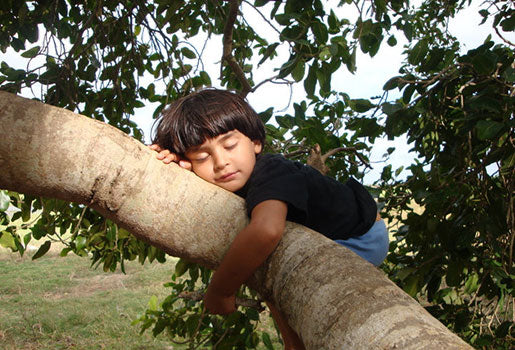Kenya Series Part Two: Climate Change, Permaculture and Mi Vida


I wish I could have posted this closer to the date when I posted Kenya Series: Part One. But as it turns out, now is the best time for this blog entry because with our President Elect, there is a lot of concern about the US pulling out of the Paris Agreement on Climate Change (see PDF below). What does this mean? It's an informal pledge to commit to recognizing "the need for an effective and progressive response to the urgent threat of climate change on the basis of the best available scientific knowledge". Signatories are also asked to acknowledge that "climate change is a common concern of humankind [where] Parties should, when taking action to address climate change, respect, promote and consider their respective obligations on human rights, the right to health, the rights of indigenous peoples, local communities, migrants, children, persons with disabilities and people in vulnerable situations and the right to development, as well as gender equality, empowerment of women and intergenerational equity".
Sadly, Climate Change used to be the buzz word in 2009-2011 but over the last few years, it seems to have become an over-used and understated term, one that has been relegated to the concerns of scientists and environmental activists. The problem with this these words "Climate Change" is that we have all become quite familiar with its meaning; we are actually too familiar with it. It's like: "yes, I get it, the world is heating up and the icebergs are melting, vulnerable villages are being washed way; we need clean energy". Unfortunately, there is much more to Climate Change, both in what it means and how/who it affects. Understanding the multidimensional depth of this phenomenon will hopefully shed a new light on what we need to do to rectify the situation. For the sake of brevity and theme (I'm not going to attempt discussing space engineering here even if that too can mitigate or prevent Climate Change), I want to talk about permaculture.
Building resilient communities so that they themselves can mitigate the impact of Climate Change has been the key focus of both big and small NGOs. Efforts have hence focused on poverty alleviation and (or by) assisting farmers with accessing tools for efficient farming practices. More efficient farming assumes that farmers will become more financially secure and then better able to respond to the oncoming disasters of climate change. While this is all true, the conventional practices for supporting farmers actually--and quite ironically--contributes to the vulnerability of our eco-system, which in turns aggravates climate change. Why? The simple reason is that conventional farming used to produce food at the rate we consume it today is extremely taxing on our soil: pesticides, synthetic fertilizers, and heavy machinery just kill microorganisms that are essential for plants to grow--without these organisms it's harder for plants to thrive so they become dependent on the chemical inputs. The problem with that is that these inputs are costly for farmers and create a vicious cycle of debt. As if this wasn't bad enough, just imagine what these toxic inputs do to their water sources when there is run off; imagine how nutritionally weak our food becomes when it grows off depleted soil and on tons of chemicals, as opposed to naturally nutrient-rich soil. To make matters worse, conventional agriculture forces land-clearing for monocultures, two of the worst possible techniques for sustaining our ecology! Without trees, we all know what happens. But what's less obvious to all is that monocultures deter important pollinating insects while attracting pests. Ahhhhh but to control these pests, crops are sprayed endlessly with the harshest chemicals ever!
Poverty is real--how we define it depends on many things, but one thing for sure is that when people do not have access to diverse foods or when farmers are tied into vicious cycles of debt associated with imposed conventional agricultural practices, communities will not thrive. No form of Climate Change mitigation strategies will ever work.
Permaculture gets this.
Permaculture is a technique that has drawn from the wisdom of old traditional practices that have been supplanted by the green revolution, which pushed for "more, faster". Permaculture is a technique that values all forms of life as they play into the collective effort to sustain all different elements of the ecology; by elements I mean the plants, the microbes, people, the insects, the animals, the soil, the sun, the wind... In permaculture, each of these things are valued as intrinsic parts of the whole. Thus each element is honored and nurtured in order to enable that element to deliver on its maximum potential without the need for external inputs that simply do not belong in this harmonic relationship.
Permaculture addresses exactly--in the most holistic and sustainable way-- what the Paris Agreement implores of its signatory Parties, that when taking action, they "recognize that climate change, respect, promote and consider their respective obligations on human rights, the right to health, the rights of indigenous peoples, local communities, migrants, children..."
It is the Permaculture technique that I use when training community member of Chemolingot, Kenya to become food secure.
More on this in the next Kenya Series.
See Paris Agreement
Leave a comment
Comments will be approved before showing up.



